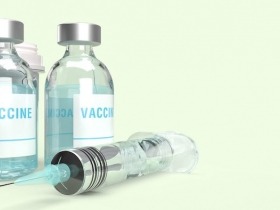Do COVID Vaccines Affect Fertility?
DO COVID VACCINES AFFECT FERTILITY?
At the time of writing, COVID-19 has been around for the better part of two years, and it’s fair to say that it’s affected all of our lives in one way or another.
In this incredibly short amount of time, doctors and scientists around the world have had to franticly come up with a vaccine that can help protect us from coronavirus disease which is caused by the SARS-CoV-2 virus, to control and slow down the rate at which it’s spread, and to dramatically lessen the effects of illness from the disease.
WHAT WE KNOW SO FAR
Unfortunately, enough time hasn’t passed yet for us to fully understand how COVID-19 affects our health in the long term, and if there’s any link between COVID-19 vaccines and decreased levels of fertility.
So far, we know that many people have successfully become pregnant after receiving a COVID-19 vaccine and that pregnant women are at a much higher risk of getting seriously ill if they contract the virus, which could also put the baby at risk. For this reason, it’s been strongly recommended that you get vaccinated if you want to become pregnant as getting the vaccine greatly outweighs the risks of staying unvaccinated. [1]
WHAT CAN HAPPEN IF YOU’RE UNVACCINATED
Unvaccinated individuals are at a much higher risk of developing serious illnesses from COVID-19 if they become infected. According to studies conducted in Scotland over 10 months when the vaccine was first available, there were 4,950 confirmed coronavirus infections among pregnant women. 77% occurred in those unvaccinated, along with 91% of the 823 hospital stays and all but two of the 104 in intensive care admissions.
Because of this, babies were affected too. The death rate for babies born within 28 days of their mother’s COVID-19 diagnosis was 22.6 deaths per 1,000 births. This figure was much higher than the rate for all newborns during the pandemic, which was 5.6 deaths per 1,000 births. [2]
So, the evidence is clear: if you’re unvaccinated, you’re putting not only yourself at risk, but also your unborn baby too.

SHOULD YOU BE HESITANT TO GET YOUR VACCINE?
No, you shouldn’t be. As mentioned earlier, staying unvaccinated carries far greater risks than if you were to get the vaccine.
According to CDC [3], recent studies have found no differences in pregnancy success rates among women who had antibodies from COVID-19 vaccines or from a recent COVID-19 infection, and women who had no antibodies, including for patients undergoing assisted reproductive technology procedures such as in vitro fertilization (IVF).
Additionally, a study of more than 2,000 couples that was funded by the NIH found that COVID-19 vaccination does not affect the chances of conceiving a child and that there were no differences in the chances of conception if either male or female partner had been vaccinated, compared to unvaccinated couples. [4]
Although there’s an overwhelming amount of evidence to suggest that vaccines are safe and don’t seem to affect fertility in any way, there’s still a lot of research that needs to be done as we’re still in the early days of the disease, and we simply haven’t had enough time to observe the effects of COVID-19 vaccinations and infection on the body over a prolonged period.
With that being said, vaccines are thoroughly tried and tested before being authorized for release – which also takes fertility into consideration too.
If you haven’t been vaccinated yet and want to become pregnant, consider the risks that staying unvaccinated has over getting the vaccine.
SOURCES:
[1] Pregnancy and coronavirus (COVID-19) - NHS (www.nhs.uk)
[2] Why being pregnant and unvaccinated against COVID-19 is a risky combo | Science News
[3] COVID-19 Vaccines for People Who Would Like to Have a Baby | CDC






